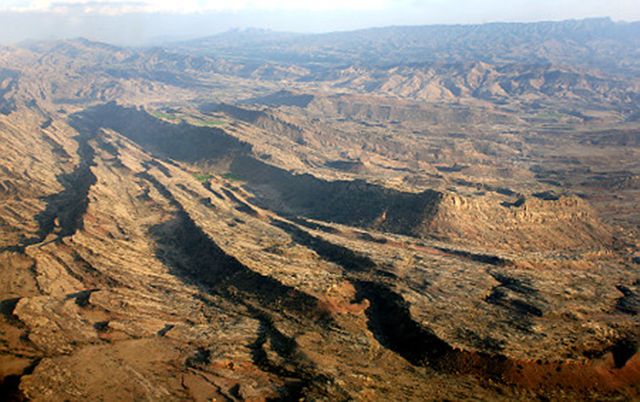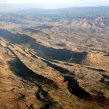
Floods Wash Out Counterterrorist Operations in North Waziristan
Publication: Terrorism Monitor Volume: 8 Issue: 34
By:

Recent political developments in Pakistan seem to have put a military operation in North Waziristan on the backburner once more. If current political trends continue, the much awaited military operation in the region may not start for a long time, if ever. The recent floods, which have been described as of biblical proportions, have further complicated launching new operations against Islamist terrorists in Pakistan. According to a senior Pakistani official, none of the U.S. officials in meetings with their Pakistani counterparts in recent months have “forcefully stressed the need for a military operation in North Waziristan. It has become even more difficult for Americans to talk about North Waziristan now in view of the floods.” [1]
North Waziristan is a sanctuary for several jihadist groups with close ties to the Pakistani military:
• The most important of these is the Haqqani network. The Haqqani Network is suspected of many deadly attacks on the U.S.-led coalition forces in Afghanistan. The important mujahideen leader is Hafiz Gul Bahadar, a direct descendant of a legendary fighter, Mirza Ali Khan, known for leading tribesmen in a war against the British in the 1930s and 1940s. Hafiz Gul Bahadar’s group defeated the Pakistan Army in 2006 and 2007. Although it signed a peace agreement with the army in 2008, Bahadar’s group broke the agreement in June 2009. However, the Pakistan Army refuses to take action against him and his group because of his potential importance in the looming post-American period in Afghanistan.
• Yet another North Waziristan Taliban group is headed by Maulana Sadiq Noor. Maulana Noor is allied with the Haqqani network and is virtually an uncrowned king in Miran Shah, the capital of North Waziristan. He was one of the Taliban leaders with whom the Pakistan Army signed a peace deal in 2008. Others included the Haqqani Network and Gul Bahadar’s group.
• Several other moderate jihadi groups (from the Pakistan Army’s viewpoint) are also headquartered in North Waziristan. They include Lashkar-i-Zil, headed by Ilyas Kashmiri, Jaish-i-Mohammad, headed by Masood Azhar, Harakat-ul Jihad al-Islami, headed by Qari Saif Ullah Akhtar, and Lashkar-i-Jhangvi, led by Akram Lahori. Some al-Qaeda militant leaders are also known to be there (The News [Islamabad] May 14).
Under intense U.S. pressure, the Pakistan Army launched a military operation against the Taliban in Swat in the spring of 2009. Alarm bells rang around the world when the Taliban entered the District of Buner on April 6, 2009. From Buner, they were merely 100 miles away from Islamabad, the capital of Pakistan (Daily Times [Lahore] April 6, 2009). The Swat operation was followed by another operation in South Waziristan (Dawn [Karachi] October 17, 2009; October 18, 2009). However, the military refused to launch an operation in North Waziristan on the pretext that the army had been stretched too thin and needed time to consolidate its gains. However, the real reason was that most of the Taliban groups in North Waziristan remain pro-army. On more than one occasion, the military publicly assured those who had taken sanctuary in North Waziristan that it had no intention of caving in to U.S. pressure and launching an operation in North Waziristan. On July 1, 2009, the army dropped pamphlets on Miran Shah, the capital of North Waziristan, which assured the people that it does not want to initiate any military operation in the region, continuing the pattern of previous operations in South Waziristan. The pamphlets stated, “It is your own military; therefore, you are called upon to fully cooperate with it… The army guarantees protection from internal and external enemies and its security is the security of the Islamic Republic of Pakistan; therefore, you should support the Pakistan Army” (Geo TV, July 1, 2009).
The United States increased pressure on Pakistan to launch a military operation in North Waziristan after a suicide bomber attacked Forward Operating Base Chapman in Afghanistan on December 30, 2009, killing seven CIA officials and a Jordanian intelligence operative, the biggest single-day loss for the CIA since the Beirut bombing of 1983 (Dawn, January 1). Despite this, Pakistan’s general staff continued to drag its feet on setting a date for a North Waziristan operation.
In the wake of last May’s failed bombing of New York City’s Times Square, the Americans increased pressure on Pakistan once more. After the links between would-be bomber Faisal Shahzad and the Taliban in North Waziristan were established, President Barack Obama sent National Security Adviser General James Jones and CIA Director Leon Panetta to Pakistan to press for the launch of military operations in the region (Dawn, May 19; May 20). Prime Minister Yusuf Raza Gillani vowed to launch military operations wherever the government’s writ is challenged, including North Waziristan. According to the Prime Minister, the government will not bow down to terrorists and will launch a military operation anywhere that serves as a safe haven for extremists. Gillani stated that Chief of Staff General Ashfaq Parvez Kayani would decide the timeline for such an operation (Daily Times, May 30). However, General Kayani did not set a date for operations to begin in North Waziristan.
It is too early to say how the current floods will change the face of Pakistan’s war on terror. It is more than certain that the natural disaster has given the Pakistani military one more excuse to use in its reluctance to launch such an operation and to not go after the terrorists who have taken sanctuary in North Waziristan. As one Pakistani politician said, “Allah has done one more favor to jihadists and the Pakistan Army by flooding Pakistan. Floods have brought the war on terror virtually to an end. The military will remain engaged with fighting the floods while terrorists strengthen themselves and build new infrastructure around the country. In a few months, when the military returns from the flood-stricken areas, it would be too late to re-start the war on terror.” [2]
Notes:
1. Author’s interview with a Pakistani official, July 2010.
2. Author’s interview with a Pakistani politician, August 2010.





